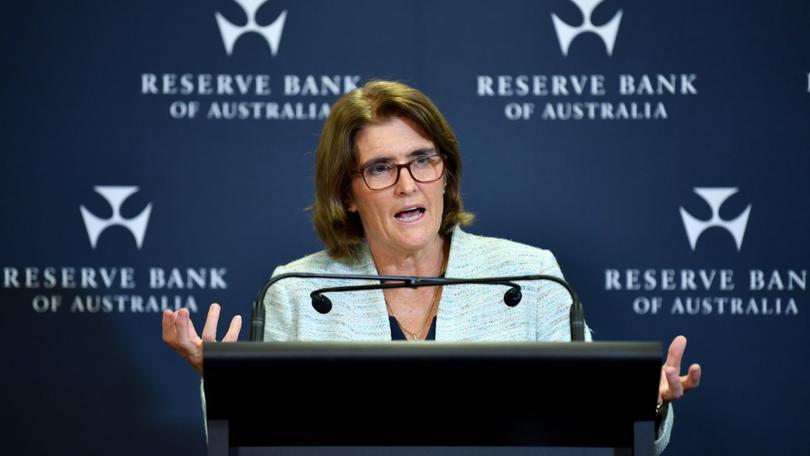HSBC chief economist Paul Bloxham warns against expecting RBA to cut interest rates in 2024
HSBC chief economist Paul Bloxham is pushing against widespread suggestions that the Reserve Bank of Australia could cut rates and deliver relief to squeezed households as early as July.

Don’t expect interest rate cuts this year. That’s the blunt message from HSBC chief economist Paul Bloxham, pushing against widespread suggestions that rate cuts could come as soon as July.
Mr Bloxham said the Reserve Bank of Australia board was more likely to cut rates next year — prolonging pain for households grappling with higher mortgage repayments.
The central bank’s board will begin its two-day meeting of the year — the second under a new monetary policy setting regime of fewer meetings and longer deliberations — on Monday. It left the cash rate on hold at 4.35 per cent early last month and is expected to do so again when it reveals its decision on Tuesday afternoon.
Sign up to The Nightly's newsletters.
Get the first look at the digital newspaper, curated daily stories and breaking headlines delivered to your inbox.
By continuing you agree to our Terms and Privacy Policy.The RBA — looking to squash inflation that peaked at three-decade highs in late 2022 — raised interest rates from 0.1 per cent in May 2022 to the current rate in November last year, an unprecedented rate of tightening that has pushed repayments up a staggering $1210 a month for those with a $500,000 loan and $1815 on a $750,000 loan.
Mr Bloxham said the RBA’s stated plan of keeping as many people in jobs had slowed the economy down by less, with inflation coming down more slowly than in other economies.
The US Federal Reserve and the European Central Bank are unlikely to cut rates before June, while the Bank of England would be closer to August, he said.
“So we’re going after that,” Mr Bloxham said.
“It doesn’t leave much room this year. I think it’s probably more a proposition for 2025 that we should be thinking there’ll be rate cuts.”
Mr Bloxham added that the inflation rate — particularly the RBA’s preferred measure of underlying inflation — was still well above the target range of 2 to 3 per cent, and services inflation, driven by high price rises in insurance, rents and utilities, was unlikely to fall meaningfully in the near future. In addition, productivity growth is falling.
This would require the RBA to keep rates on hold, particularly as the economy was still largely “holding up reasonably well”, he said, in large part due to population growth.
Economists at the four major banks all expect interest rate cuts this year, while AMP expects July for the first rate cut.
Commonwealth Bank head of Australian economics Gareth Aird said the RBA would leave the cash rate unchanged in what should be a “straightforward decision”.
“Overall we expect a very similar message from the board and governor on how the economy is tracking to the communication we got in February,” Mr Aird said.
Mr Bloxham said the RBA had emphasised at its February meeting there was no discussion about rate cuts at all.
“It’s going to be a slow grind to get inflation down. And with that, it’s probably going to be a while until we should expect rate cuts,” he said.
When the RBA does eventually begin rate cuts, likely early next year Mr Bloxham said, it would be gradual. He added there were minimal mortgages in negative equity, and those forced to sell if they could not afford repayments would likely realise a strong price, allowing them to move to a property they could afford.
The strong property and jobs market were providing a buffer for people otherwise in distress that had not been present in previous times of economic turbulence, he said. House prices, including rents, were unlikely to sink too far when there was limited housing supply.
In addition, strong prices for commodities, in particular for iron ore, was helping to support the broader economy. That lessened the chances of Australia falling into recession despite the squeeze on consumers.
“Even despite the challenges . . . in lithium and nickel, far and away the single biggest thing exported out of WA is iron ore, and the iron ore story is still pretty positive,” Mr Bloxham said. “The other one is gas, which is still holding up.
“So I think the resources story is still pretty positive, and WA is one of the better performing States.”
